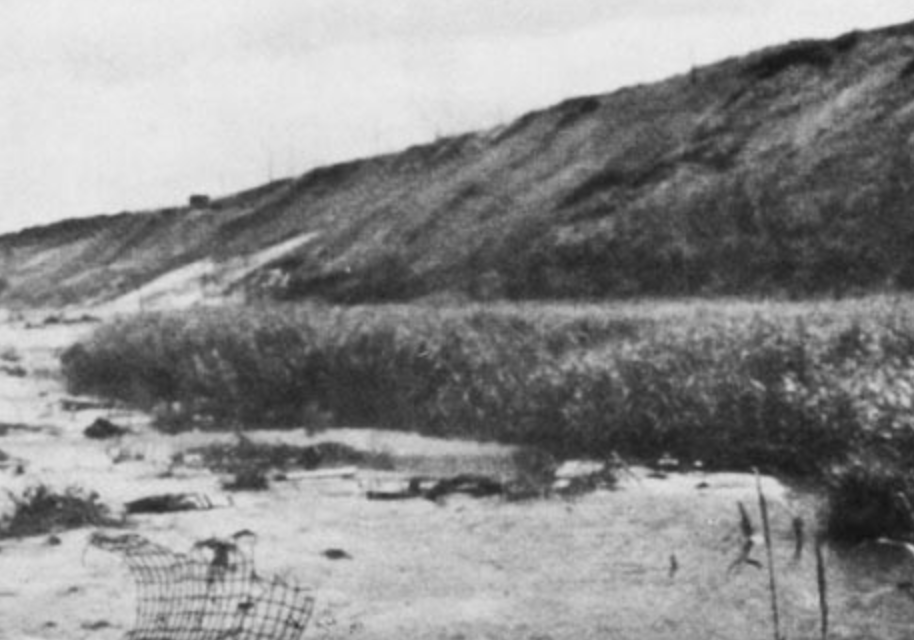I must admit that June 6 is an unforgettable day for me. I have expended thousands of words over the years about the historic D-Day invasion of the Normandy, France beaches on June 6, 1944. Today is the 79th anniversary of the greatest amphibious assault in military history.
Surprise was the deciding factor in the successful Allied effort to claim a strategically important beachhead.
Henry Turner, a 19-year-old Easton native, was part of the first wave of that unexpected invasion, landing on Omaha Beach in the village of Vierville. He and his fellow soldiers faced withering fire from German forces—despite the astonishing Allied action— situated on the bluffs overlooking the beach. Members of the famed 29th Infantry Division, comprising a large number of troops belonging to the Maryland and Virginia National Guard, endured mind-numbing combat.
They determined to overcome their German counterparts. And they succeeded.
After the war, Turner became an attorney, serving three terms as the Talbot County State’s Attorney, before becoming chair of the Maryland Parole Commission.
In 1994, I encountered Turner at a Washington Street store. I asked if he planned to join 29th Division veterans traveling to Normandy to celebrate the 50th anniversary of D-Day. I was going to France as Gov. William Donald Schaefer’s escort officer. Turner responded curtly, “No. I will not even watch “The Longest Day,” the acclaimed film about the assault.
End of conversation.
Turner had witnessed unbelievable human damage and death at a young age. He did not want to relive relentless fighting in France.
I respected his reticence. I understood his angst.
Turner, who died in 2015 at age 91, was courageous and outspoken. I recall attending a Memorial Day event at the Easton VFW. He was the main speaker. He eschewed flowery comments about Memorial Day, the same heard every year. Instead, he spoke about equal opportunity in the Armed Forces. He was not a politician trying to please the audience.
Over my 30-plus years in the Maryland National Guard, I met and liked many D-Day veterans. Most have died. Bill Boykin, a Baltimore resident, was one of them. He was an artillery officer attached to the 2nd Battalion, 115th Infantry, 29th Division. The unit was massacred by Germans retreating from Omaha Beach and finding the American soldiers resting in a field surrounded by hedgerows, after a long day’s march.
During the June 1994 visit to 29th Division battle sites, including the one attacked by German soldiers, Boykin questioned the description of the nocturnal assault. He adamantly refuted the perception of trips too tired to set up perimeter defense.
Historians disagreed.
The Boykin story reflects pride and conviction on the part of an officer opposed to a commonly told story. Even 50 years later, he defended the unit and its commander caught unexpectedly in the line of deadly fire.
Memories haunt combat veterans. Though time may alter their accuracy, they never vanish.
Men like Turner and Boykin contributed to the demolition of Adolph Hitler’s Fortress Europa. They fought bravely and relentlessly. They preserved freedom against a madman determined to establish hegemony in Europe.
As we celebrate the Allies’ magnificent victory on D-Day today, I urge readers to pay homage to 29th Infantry Division soldiers who confronted an onslaught of firepower on a formerly serene French beach. They persevered.
They endured the loss of friends and comrades. They suffered the loss of innocence.
Very few are still alive.
They spent three years away from their families and communities. They came home and rebuilt America. They talked sparingly about their wartime experiences.
Peace is elusive. War is horrible, but sadly necessary. Thank goodness for people like Henry Turner and Bill Boykin.
Columnist Howard Freedlander retired in 2011 as Deputy State Treasurer of the State of Maryland. Previously, he was the executive officer of the Maryland National Guard. He also served as community editor for Chesapeake Publishing, lastly at the Queen Anne’s Record-Observer. After 44 years in Easton, Howard and his wife, Liz, moved in November 2020 to Annapolis, where they live with Toby, a King Charles Cavalier Spaniel who has no regal bearing, just a mellow, enticing disposition.




Juanita Robbins says
Thank you for maintaining the currency of the human toll and why it was necessary for all who have lived in more privileged times.